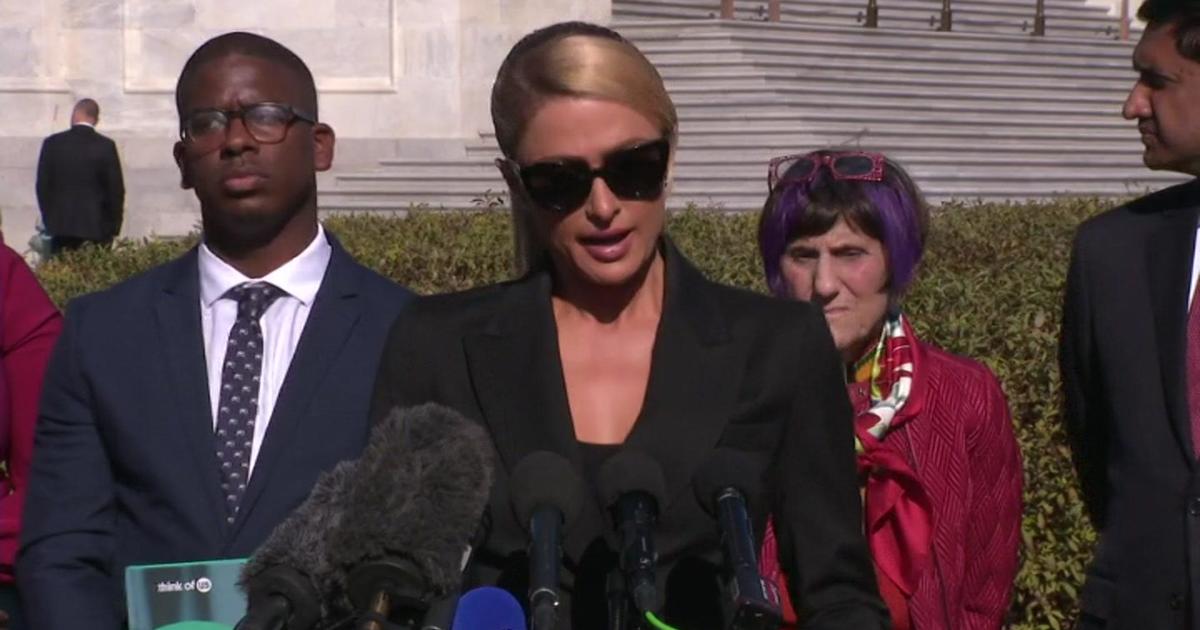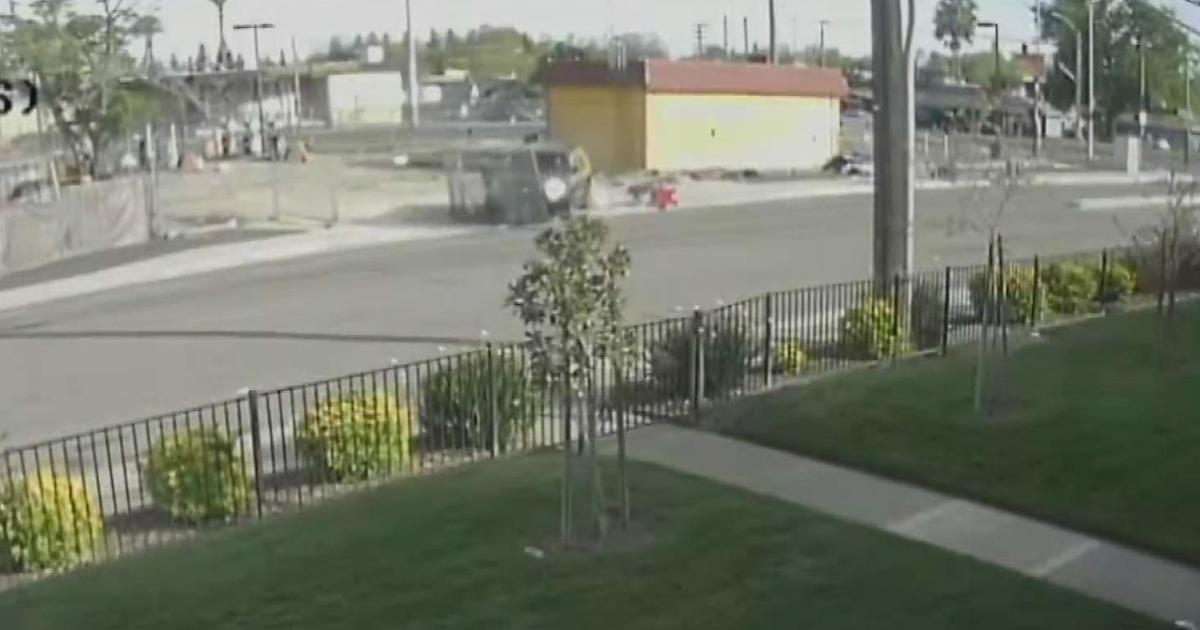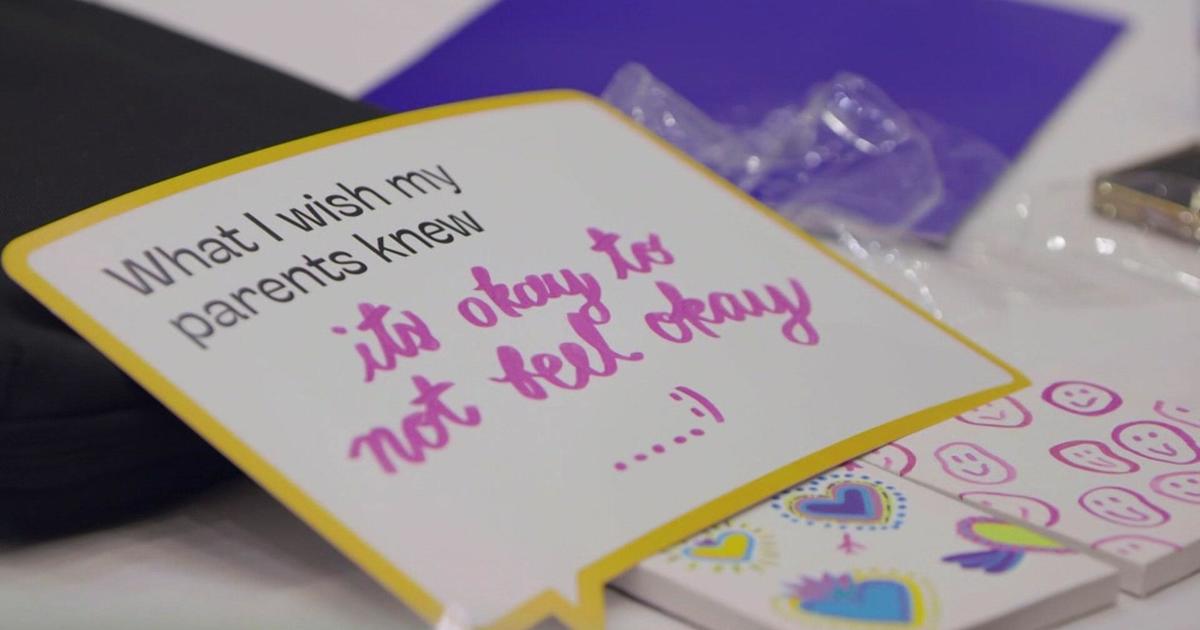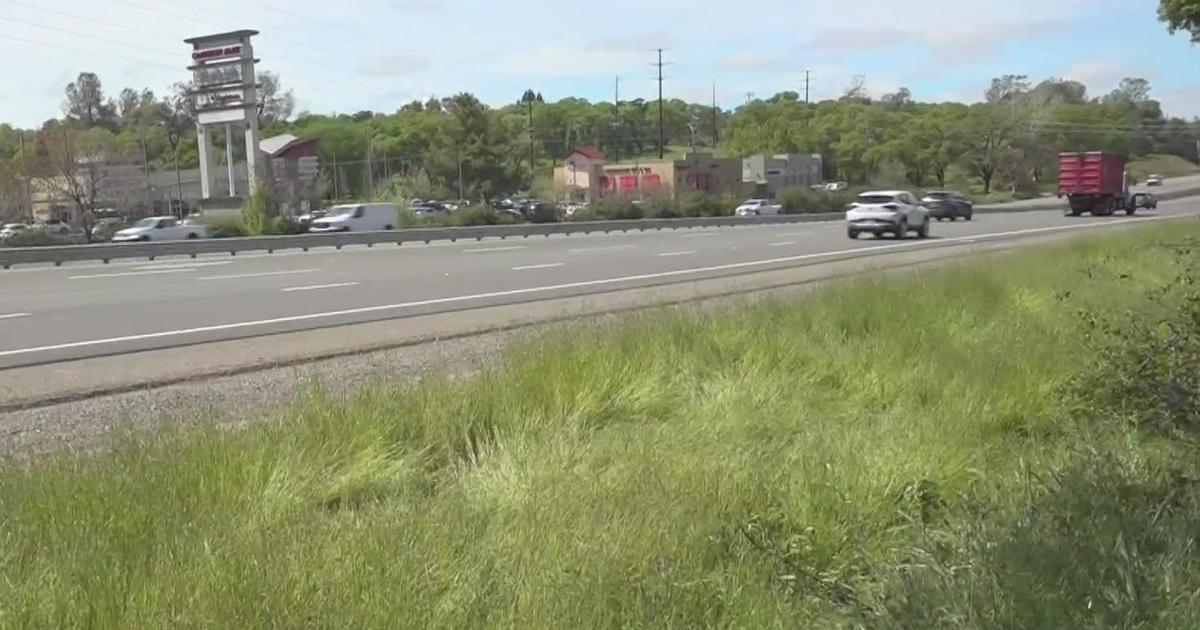Illegal Logging Of Amazon Rainforest Back On The Rise
HOUSTON (AP) - Never before had so much lumber been denied entry at a U.S. port on evidence that it was harvested illegally.
Homeland Security investigators in Houston, acting on intelligence from their Peruvian counterparts, halted 1,770 metric tons of Amazon rainforest wood - enough to cover three football fields. The October 2015 impoundment from a rusty freighter was a rare victory in the battle to preserve tropical forests and a blow against organized criminal logging in Peru, where the World Bank says 80 percent of timber exports are illegal.
But the triumph was short-lived. The driving force behind the operation, the chief of Peru's forest inspection service, was soon dismissed - on the same day the U.S. ambassador visited him for a pep talk - and forced by death threats to flee to the United States.
Government actions further undermined Washington's efforts to get Peru to clean up its notoriously corrupt timber industry, an Associated Press investigation found, as Lima failed to meet environmental enforcement requirements set by a 2006 free trade agreement with the U.S.
Now the United States has little to show for more than $90 million in forest-protection aid and other assistance to Peru, which is home to the world's second-largest swath of the Amazon after Brazil and has been losing about 600 square miles of forest each year - an area roughly equal to half of Rhode Island.
The U.S. was hoodwinked into believing the Peruvian government was serious about taking down illegal loggers, said Rocky Piaggone, a U.S. attorney for environmental crimes who visited Peru regularly before retiring last year.
"They were expecting to get prosecutions, but they got nothing," he said, and their eyes were opened when the forest inspection chief - whose job they had been assured was safe - was fired.
Since then, inspections to detect criminal timber harvesting have been scaled back. Prosecutions have barely advanced, and officials who signed falsified logging permits remain on the job.
A FIREBOMBING AND EXILE
Illegal logging is the world's most lucrative environmental crime, according to the United Nations , inflicting at least $50 billion a year in economic damage. It is typically intertwined with money laundering and tax fraud, Interpol says, and its sophistication often overwhelms law enforcement in countries where the logging happens.
Congress in 2008 tried to ensure that rainforest wouldn't be ravaged to put wood in American homes, making trafficking in illegally harvested timber a crime punishable by up to five years in prison.
The new law's biggest casualty, Lumber Liquidators Inc., pleaded guilty in 2015 to knowingly importing illegally cut timber from Russia's far east, where Siberian tigers were imperiled. The company paid $13 million in fines and restitution.
The $1. 5 million shipment impounded in Houston contained species commonly used for plywood, molding and flooring. A separate shipment was later seized in Mexico, effectively shutting down Peru's lone Amazon River wood export route.
Peru's superintendent of tax and customs control described the damage exacted on the country's illicit timber trade as "the tip of the iceberg."
"You could say we've taken a big step. But a big part of the problem remains to be uncovered," Gustavo Romero said.
A month after the Houston impoundment, Peruvian prosecutors were thwarted when they attempted to offload hundreds of tons of wood from the same freighter, the Yacu Kallpa, in the city of Iquitos on the Amazon River. A week later, a forest inspectors' office was firebombed in Peru's main sawmill city, Pucallpa. Eight police officers were hurt trying to dismantle burning barricades.
Protesters set ablaze a coffin draped with a banner bearing the name of the forest inspection chief, Rolando Navarro. They wanted him out.
On Jan. 14, 2016, then-President Ollanta Humala fired him. The agriculture minister said a fresh face was needed.
Hours before his ouster, Navarro was visited by U.S. Ambassador Brian Nichols, and the two men discussed the forest inspection chief's plans for stepped-up enforcement.
"He was really happy with the caliber of our work," Navarro said. "A big organized crime network was being confronted."
Nichols declined to be interviewed. But another person who attended the meeting, speaking on condition of anonymity for fear of retribution, confirmed Navarro's account.
Within a week of being fired, Navarro fled to Washington, D.C.
Navarro's wife was later approached at a stoplight in Lima by a gunman, according to a police report. He threatened: "Your children are going to pay for the wood."
A SON OF THE AMAZON
Navarro, 41, was raised in the Amazon city of Tarapoto and got his renewable resource management degree in the early 1990s in the eastern Andean foothills at Tingo Maria, the cradle of the cocaine trade, during the country's vicious conflict with Shining Path rebels.
By the time Navarro was named head of the forest inspection service in 2012, he had traveled the Amazon for more than a decade, observing extensive illegal logging.
A few rainforest dwellers resisted. In September 2014, activist Edwin Chota and three others were killed after years of trying to expel rogue loggers from their community's lands. The lone imprisoned suspect was released last year.
"There's almost no evidence," prosecutor Julio Reategui said, lamenting that police are ill-equipped and the slain men's relatives are not talking. "It could be they're afraid."
Poor forest-dwellers can be easy pawns in the lumber trade.
"A 'patron' comes and says, 'I need wood,'" Navarro said. That person offers an outboard motor and a dugout canoe, "and he's got them hooked for life."
Timber harvesting in Peru requires permits showing the wood comes from approved harvesting areas. But for a price, regional forestry officials have for years signed off on paperwork that falsely states the origin of timber, prosecutors say.
A 2006 U.S.-Peru free trade pact sought to end the charade, which had helped deplete Peru's precious mahogany and cedar.
With U.S. embassy backing, Navarro and allies in the customs and tax agency targeted serial transgressors who exported wood on the Yacu Kallpa in 2015. They compiled evidence of systematic permit fraud. On tracts where 95,000 trees worth at least $53 million were supposedly harvested, inspectors found virgin forest. Some wood was listed as coming from nonexistent communities.
U.S. RESPONSE TO PERU'S FAILURES
Peru defended the Houston shipment. In a 2016, letter to then-U.S. Trade Representative Michael Froman, Peru's foreign trade minister said the load complied with the country's "formal legal requirements" and that neither the government nor the exporters knew that more than 95 percent of the wood was of illegal origin until after the Yacu Kallpa set sail.
Enforcement eroded on multiple fronts:
- Peruvian forest service personnel in 2015 were instructed to halt routine inspections of lumber exports unless the wood included mahogany or cedar, which require special certificates, according to public records obtained by the Environmental Investigation Agency, a nonprofit that raised awareness about Peru*s illegal logging with an expose in 2012.
- The office of the illegal logging czar was dissolved after Peru's new president, Pedro Pablo Kuczynski, took office in July.
- At the agency Navarro had headed, the aggressive, targeted inspections of the previous two years ended. Also stalled were technology upgrades to a GPS tree-identification system and creation of a drone inspection fleet, which the U.S. had encouraged.
President Barack Obama's administration sought explanations.
Froman asked Peru whether a January 2015 shipment to Houston involved illegally harvested wood, which could subject the U.S. importers to criminal prosecution. Peru confirmed the wood was illegal.
Peru has made "important progress over the years," Froman told the AP, but it is important to hold their "feet to the fire."
Some members of Congress say the Obama administration was too lenient with Peru.
Rep. Lloyd Doggett, a Texas Democrat, accused Froman of "covering up for Peru's failures."
Asked whether Peru has upheld its obligations under the trade pact to combat illegal logging, State Department spokesman Joseph Crook said the U.S. was "committed to working with our Peruvian counterparts to ensure timber legality throughout the supply chain."
Under a Peruvian law that took effect in 2015, illegal logging and timber trafficking carry prison sentences of up to eight years, but there have been no convictions.
The main exporter suspected in the Yacu Kallpa case remains under investigation, but there have been no arrests. A U.S. government official who was not authorized to speak publicly called the plodding investigation a sign that "there is no political will" in Peru to prosecute anyone but small-time players.
FALSIFIED PERMITS, UNPUNISHED FRAUD
For years, the U.S. has been pressing for an electronic timber tracking system and for prompt sanctions for illegal logging. U.S. and Peruvian customs and law enforcement officials say real reform can begin only by purging officials who have falsified permits - a task that's up to Peru's forest service.
Over six years, the inspections agency found infractions in at least 70 percent of 4,500 jungle inspections. The forest service was routinely provided with the names of the officials responsible but took no action, Navarro said.
The forest service's new director, tropical wood specialist John Leigh, was sent a list of more than 100 officials in February who forest inspectors found had signed fraudulent logging permits. Leigh said in an interview at the time that he was "initiating the process of sanctions."
Of 153 officials currently licensed to sign permits, 1 in 7 was under investigation, forest service spokeswoman Lissete Herrera said.
Three officials have been fired for falsifying permits, according to an AP open records request, and the man with the most infractions - three - was fined $1,500.
THE LUMBER INDUSTRY FALLOUT
After more than a year on the docks, the lumber impounded in Houston was destroyed, the last of it chewed up by bulldozer treads and blanketed in dirt at a Houston landfill in March.
Seventy percent of it belonged to Mexican-owned Global Plywood and Lumber Trading LLC, which came under federal criminal investigation, according to a search warrant for its San Diego County offices at a volleyball gym.
The seven importers involved resisted for more than a year until reaching a no-fault settlement with U.S. customs officials requiring them to pay storage fees plus disposal costs.
Jim Reader of Downes and Reader Hardwood Co. of Stoughton, Massachusetts, said he lost $250,000 on the impounded lumber and has no plans to import any more. He said he was sure his company had only bought wood from legal sources in Peru.
"I'm all done with Peru," he said.
For its part, Peru's logging industry says it has lost about $140 million in sales each of the past two years from bad publicity surrounding the crackdown.
Navarro, whose agency enabled the impoundment, said, "The biggest loser here is me."
He now consults for the nonprofit Center for International Environmental Law out of a spartan Washington office. Separated from his wife and seeking political asylum, he hopes his new partner, a Lima lawyer, and their toddler daughter will be allowed to join him soon.
"I don't know when I'm going to be able to return to Peru."
Copyright 2017 The Associated Press.



